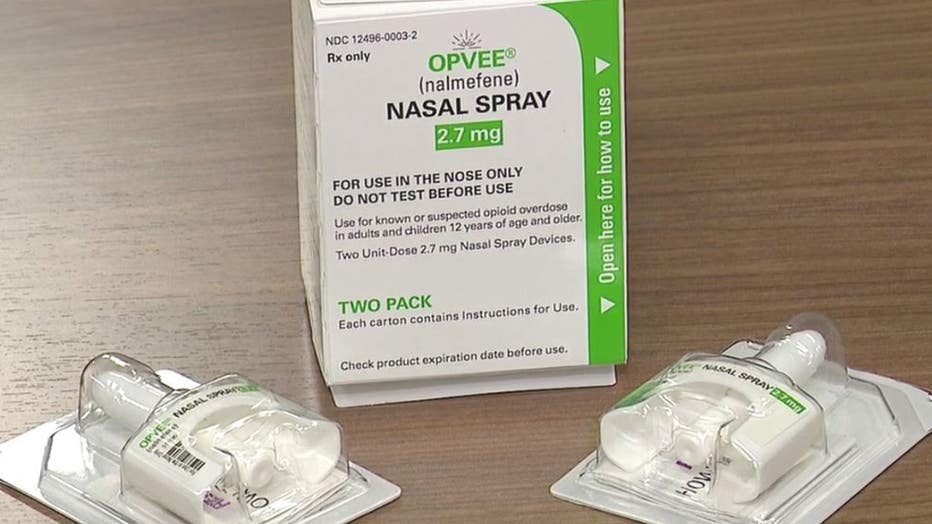Oakland County deputies reverse 26 overdoses with Opvee, which works on fentanyl
26 fentanyl overdoses have been reversed by Oakland County deputies with Opvee
The Oakland County sheriff’s office is not just the first law enforcement agency in the country to offer Opvee, a drug that reverses fentanyl overdoses.
OAKLAND COUNTY, Mich. (FOX 2) - The Oakland County Sheriff’s office is not just the first law enforcement agency in the country to offer Opvee, a drug that reverses fentanyl overdoses.It is the first organization of any kind to administer the drug in the field.
Opvee is different than Narcan because it’s approved specifically to treat synthetic opioid overdoses - similar to Narcan. The sheriff's office is the first US organization of any kind to administer the drug in the field in the U.S.
"We have now 26 people that have been reversed with Opvee, in the field," said Steve Norris, the Alliance of Coalitions for Healthy Communities.
The Opvee incidents is providing the first data other than clinical tests.
"This is the only real-world occurrence of this administration," he said.
Hilary Golston, FOX 2: "I know this is at an anecdotal stage. What are the differences you’re seeing between Narcan and Opvee in their effectiveness?"
"The gold standard is Naloxone, Narcan. But what we are seeing is that, prior to introducing Opvee we needed more doses of Narcan (because of) synthetic opioids more than ever before. Sometimes, two, three or even four doses."
Related: Oakland County Sheriff's Office is 1st in US to use fentanyl OD reversing drug Opvee
What we are seeing is that quicker recovery from respiratory depression is happening. And so if we can compare that based on this limited amount of people that we reversed so far, we are very encouraged by the result."
Reversing Respiratory depression means folks are breathing better, they are conscious and their recovery is better… they have more oxygen in their blood.
Opvee was approved by the FDA specifically to better reverse the effects of a synthetic opioid overdose, like fentanyl.
This is just the tip of the iceberg. Norris is not only helping to train deputies how to use Opvee, but is also on the ground. He is there when people’s lives are saved by this new drug.
Norris previously struggled with opioid addiction and he hopes his story will encourage others to get help.
"They offered me help and I heard it in the officer's voice," he said. "They were there obviously to protect and serve, but they were there to help me. And that is the essence of the Crisis Response Unit."


